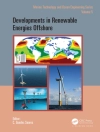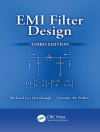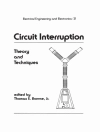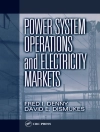This book offers a comprehensive exploration of the latest novel and fundamental advances in clean energy resources and systems, energy economics, and energy policy. Designed to help steer the course toward a cleaner, more sustainable energy landscape, it presents case studies on clean energy technology, explores sustainable methods for increasing energy efficiency, and examines current concepts and solutions to global energy storage and energy-saving issues. Topics covered include:
- Clean coal and fossil fuels;
- Green power production and cogeneration;
- CO2 capture, storage, and utilization;
- Biomass, wind, and nuclear energy engineering;
- Hydrogen and fuel cell technology.
Trends in Clean Energy Research is an essential guide to current research for scientists, practitioners, engineers, students, and researchers.
Chapter “State of Decision-Making in the Baltic States: Nuclear Energy Past and for the Future” is available open access under a Creative Commons Attribution 4.0 International License via link.springer.com.
Содержание
Part 1 Solar Photovoltaic Power Generation and Solar Energy Applications.- Chapter 1 Installations of Solar PV to Prevent CO2 Emissions for Schools in the Hampshire.- Chapter 2 Energy Evaluation of Photovoltaic Integration in Student Building with Different PV Technologies.- Chapter 3 Technical-economic Modeling of a microgrid incorporating renewable photovoltaic energy.- Chapter 4 Indoor Solar Thermal Cook Stove Design.- Chapter 5 Solar energy performance prediction with regression algorithm in machine learning based on weather conditions: A case study.- Part 2 Renewable Energy Technology and Energy Efficiency Optimization.- Chapter 6 Technical-economic evaluation of a stand-alone hybrid renewable energy system with different dispatch strategies.- Chapter 7 Recent Tools and their Roles towards High-share Renewable Energy in the Climate-Changing World.- Chapter 8 Assessment of wind and wave climate dynamics in the Mediterranean and Black Seas for renewable energy potential analysis.- Chapter 9 Evaluation of the Performance of an Activated Carbon’s family for Biogas Upgrading using the Adsorption Performance Indicator.- Chapter 10 Estimation of Power Consumption in Screw Gas Compressor installed on Natural Gas Power Plant.- Chapter 11 An Approach for Voltage Drop Improvement in Distribution Line using High Voltage Capacitor Bank.- Chapter 12 Numerical Analysis of the Flow Phenomena inside the Vortex Tube with Different Turbulence Models.- Chapter 13 Technical-economic implementation of a control and supervision system in air conditioning systems through BACnet for energy efficiency in buildings.- Chapter 14 State of Decision Making in the Baltic States: Nuclear Energy Past and for the Future.- Chapter 15 The Transition to 100% Renewable Energy Versus the Global Temperature Scenarios: A Perspective Analysis.- Part 3 Energy Materials and Energy Storage Technology.- Chapter 16 Research on the Performance of Positive Electrode Modified with Fluorinated Carbon Based on Silver Coating.- Chapter 17 Research on the Positive Electrode Performance of Lithium Battery Based on the Mixture of Carbon Fluoride and the Manganese Dioxide.- Chapter 18 Effects of C-rate on the thermal behavior of commercial lithium-ion pouch cells with different aging histories for a successful second-life transition.- Chapter 19 Research on preparation process of graphene oxide of negative electrode materials.- Chapter 20 Energy storage capacity of microencapsulated phase change materials.- Chapter 21 Energy Storage in the Smart Grid: a Multi-Agent Deep Reinforcement Learning Approach.- Part 4 Carbon Capture and Sustainable Development.- Chapter 22 Exploration on the Key Factors to the Successful Implementation of Carbon Capture and Storage (CCS) Projects Based on a CCS Project Inventory.- Chapter 23 Energy-Food Commodity Prices Movement and Equation in Kyoto (2006) Perspective: Factor Analysis and Non-Linear Framework.- Chapter 24 Sustainable Construction Materials from Industrial By-products.- Chapter 25 Towards Sustainable CO2 Reduction and Brine Utilization: Investigating Alkaline-Enhanced Solvay Processes.
Об авторе
Dr. Lin Chen is a full professor and director of the Heat and Mass Transfer Research Center at the Institute of Engineering Thermophysics, Chinese Academy of Sciences, and jointly at the University of Chinese Academy of Sciences, China. Before that, he was a JST-CREST and JSPS research fellow and an assistant professor at Tohoku University, Japan. His research interests include energy resources, supercritical fluids, soil remediation, and advanced measurement technologies, and recently, he has focused on CO2-based energy systems and utilization processes. Dr. Chen received his B.E. and Ph.D. in Mechanics (Energy and Resources Engineering) from Peking University. He has authored over 300 well-cited international journal papers and conference presentations, 21 patents, nine book chapters, and four books, including the most famous one Handbook of Research on Advancements in Supercritical Fluids Applications for Sustainable Energy Systems (2021). He was winner of the 2018 AUTSE Young Scientist Award and the Paper Award of the Visualization Society of Japan (2022) for his contribution in supercritical fluid fundamental studies and measurement techniques of fluid dynamics under extreme conditions. He is currently a board member of the Experts Commission of the China Energy Society, an associate editor of the ASME Journal of Nuclear Engineering and Radiation Science, and an editorial board member of the Journal of Supercritical Fluids.












